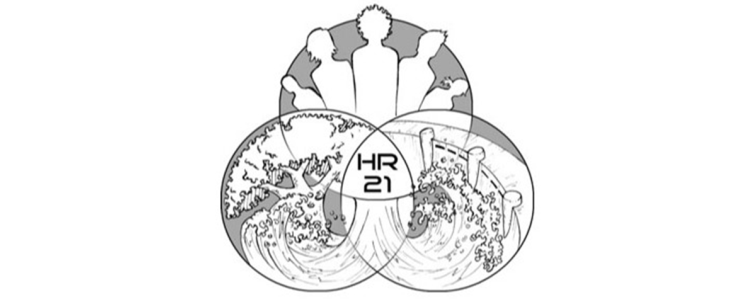UH 796 763 Doctoral programme Human River Systems in the 21st Century (HR21)

HR21 addresses critical knowledge gaps in industrialized riverine landscapes and coupled socio-ecological systems research by developing new analytical and modelling tools and train a new generation of scientists in a multi- and trans-disciplinary environment. Within the HR21 Doctoral School three domains – natural sciences, engineering sciences and social and economic sciences are working together.
Further information about the research focus, the training programme for doctoral candidates and the faculty members are available on the website of the Doctoral School: hr21.boku.ac.at
Admission
- Admission requirements for doctoral studies „Advanced Biorefineries: Chemistry and Materials“, „AgriGenomics”, „Biomaterials and Biointerfaces”, „Bioprocess Engineering“, „Build like Nature: Resilient Buildings, Materials and Society“, „Hazards and Risks in Alpine Regions under Global Change“, „Human River Systems in the 21st Century“, „Social Ecology“ and „Transitions to Sustainability“ include:
- a.1.) a diploma or Master’s degree in natural sciences, engineering sciences or in social and economic sciences
or
- a.2.) a degree from an accredited Austrian or international university that is equivalent to the diploma or Master's degrees listed under item a.1.
or
- a.3.) a degree from an accredited degree programme at an Austrian Fachhochschule (University of Applied Sciences)
or
- a.4.) fulfillment of the admission requirements of the study programme PhD BOKU University
and
- b) the acceptance into a BOKU Doctoral School
and
- c) the conclusion of a supplementary program-specific doctoral thesis agreement.
- a.1.) a diploma or Master’s degree in natural sciences, engineering sciences or in social and economic sciences
- If equivalence is given except for individual courses not exceeding a total of 60 ECTS, the Rectorate is allowed to require certain examinations to be taken during the doctoral studies in addition to the doctoral examination (viva voce).
- With respect to admission according to section 1 item a.2.), students with post-graduate degrees awarded by an international institution must furthermore present proof of admission to doctoral studies by the issuing country, certifying the general university entrance qualification.
- The admission is granted by the Rector of BOKU.
Duration and structure
- The doctoral studies „Advanced Biorefineries: Chemistry and Materials“, „AgriGenomics”, „Biomaterials and Biointerfaces”, „Bioprocess Engineering“, „Build like Nature: Resilient Buildings, Materials and Society“, „Hazards and Risks in Alpine Regions under Global Change“, „Human River Systems in the 21st Century“, „Social Ecology“ and „Transitions to Sustainability“ comprise a minimum of 180 ECTS credits, including at least 20 ECTS credits of doctoral courses. The minimum of ECTS credits of doctoral courses as well as all mandatory courses that have to be taken are specified in the program-specific supplementary doctoral thesis agreement of the Doctoral School.
- Admission granted according to § 2 section 1 item a.3., stipulates additions to the programme congruent with legal requirements.
- Upon successful admission to the doctoral studies the candidate is to officially register his or her doctoral project at the Dean's Office within one year. For registration the following information is to be provided:
- Dissertation topic
- Academic degree to be awarded upon successful defense of the doctoral thesis (based on field of research)
- Name of supervisor with full teaching authorization (venia docendi) or equivalent qualification. The supervisor needs to be part of the faculty of the Doctoral School.
- Presentation of an exposé approved by the supervisor, including:
- Advisory team: Must be at least 3 persons including the supervisor and at least one additional faculty member of the Doctoral School with venia docendi or equivalent qualification. At least one member of the advisory team must not to be from BOKU or the faculty of the BOKU Doctoral School.
- Time and work schedule
- Plan of resources
- Proposal for doctoral courses
Basic Data
Programm classification no.:
UH 796 763
Duration:
6 Semester - 180 Credits
Degree:
Dr.nat.techn. or Dr.rer.soc.oec. (based on field of research)
Study Programme Coordinator
Univ.Prof. Mag.Dr. Thomas Hein
Curricular committee

Chairperson
Assoc. Prof. Priv.Doz.DI Dr.nat.techn. Brigitte Gasser
The subject-specific study commission is responsible for overseeing curriculum development.
